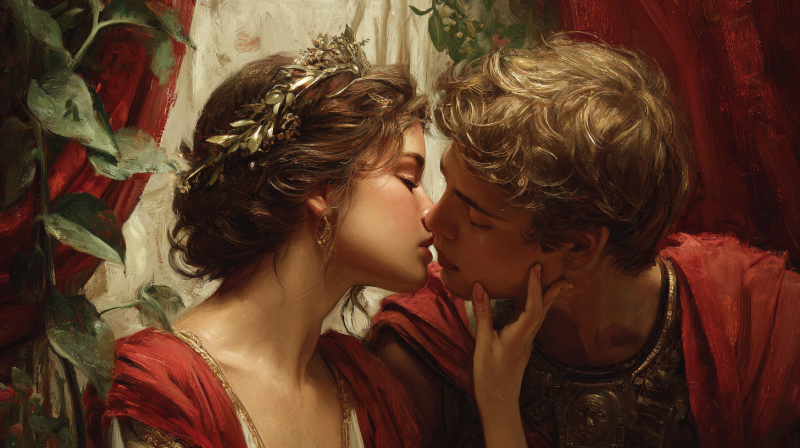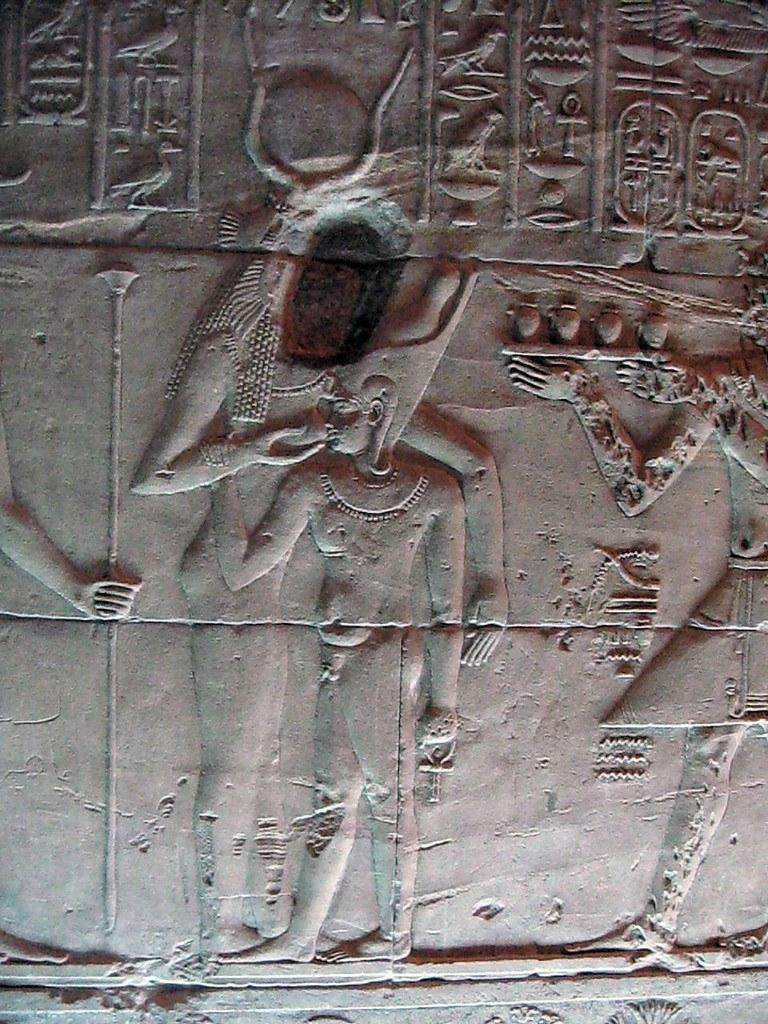Once upon a time, in a land far away, there lived a beautiful princess named Psyche. She possessed such extraordinary beauty that people compared her to the goddess Aphrodite herself. However, this blessing turned out to be a curse, as it filled the hearts of men with such overwhelming desire that they forgot to worship the goddess of love. This angered Aphrodite, who decided to punish Psyche.
Aphrodite summoned her son, Eros, the god of love, and commanded him to make Psyche fall in love with the most hideous creature in the world. However, Psyche’s beauty enthralled Eros, and he found it difficult to comply with his mother’s instructions. Instead, he shot himself with one of his own arrows, causing him to fall deeply in love with Psyche.
Meanwhile, Psyche’s beauty had become a burden for her family as well. No man dared to marry her, fearing the wrath of Aphrodite. Her parents, desperate to find a solution, consulted an oracle, who revealed that Psyche was destined to marry a monster who lived on a distant mountain.
Resigned to her fate, Psyche was taken to the mountain by her family, where she was left alone to face her unknown husband. As she wandered through the lush gardens surrounding the palace, she was surprised to find that everything seemed to be enchanted. Invisible servants attended to her every need, and a mysterious voice assured her that she would never be harmed.
Night after night, Psyche’s husband visited her in the darkness, making passionate love to her without ever revealing his face. Psyche grew to love him deeply, but her curiosity got the better of her. One night, she decided to light an oil lamp to catch a glimpse of her mysterious lover.
To her astonishment, she discovered that her husband was none other than Eros himself. He awoke when the light suddenly shone, realizing that Psyche had broken her promise not to look at him. Filled with disappointment and anger, he flew away, leaving Psyche alone once again.
In an effort to win back Eros, Psyche sought the assistance of Aphrodite. The goddess, still furious with her, devised a series of impossible tasks for Psyche to complete. She was to sort a massive pile of mixed grains, gather golden fleece from dangerous sheep, and fetch a vial of water from the River Styx.
With the help of various creatures and gods, Psyche managed to complete each task. However, her final challenge was the most difficult of all. Aphrodite demanded that Psyche descend into the Underworld and retrieve a box of beauty from Persephone, the queen of the dead.
Psyche, determined to prove her love for Eros, ventured into the dark realm of Hades. She followed the instructions given to her and managed to retrieve the box without succumbing to the temptation to peek inside. On her way back, however, her curiosity once again got the better of her, and she opened the box.
To her surprise, instead of beauty, the box contained a deep slumber that overcame her immediately. Eros, who had been watching over her all along, could not bear to see her suffer any longer. He flew down from Mount Olympus, woke her with a gentle kiss, and pleaded with Zeus to grant Psyche immortality.
Zeus, moved by their love and determination, agreed to their request. Psyche was transformed into a goddess and reunited with Eros, her true love. From that day forward, they lived happily ever after, their love story serving as a reminder of the power of true love and the strength of the human spirit.
The story of Eros and Psyche has been passed down through the ages, captivating the hearts and minds of generations. It teaches us that love is not always easy, but it is worth fighting for. It reminds us that true beauty lies within and that even in the face of adversity, love can conquer all.
So let the tale of Eros and Psyche inspire you to believe in the power of love, to embrace your own inner beauty, and to never give up on your own happily ever after.
DISCLAIMER
The stories and myths presented on this site are intended for entertainment purposes only. While efforts have been made to ensure their accuracy, it is important to note that historical and cultural narratives can vary, and there may be discrepancies or differing interpretations. Readers are encouraged to conduct further research and consult reliable sources for a comprehensive understanding of the subject matter. The site cannot be held responsible for any inaccuracies or misinterpretations that may arise from the content provided.





